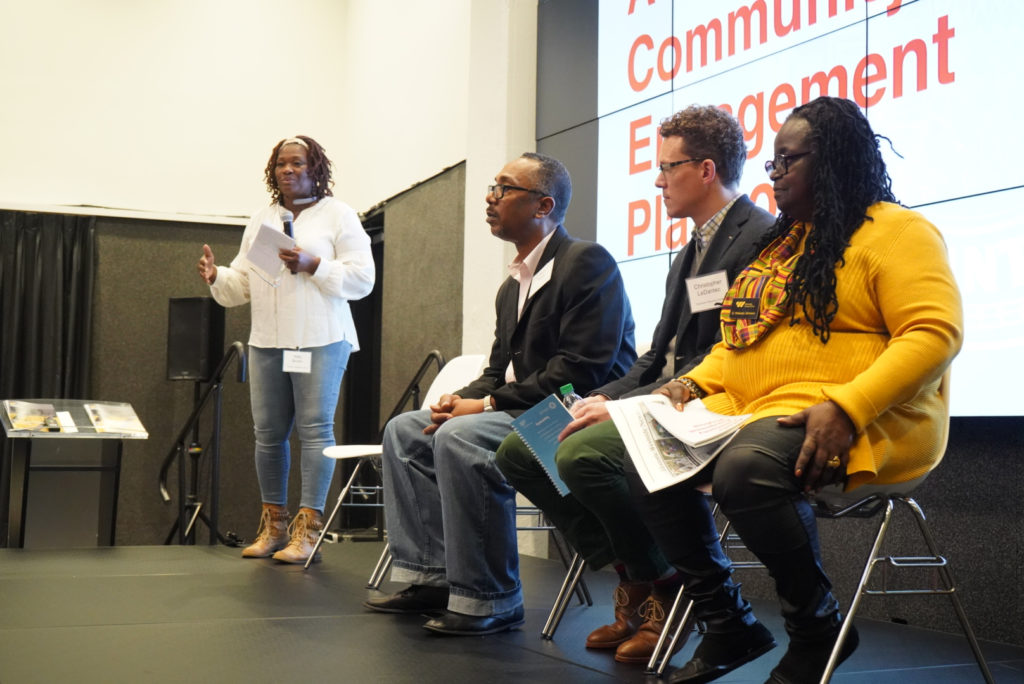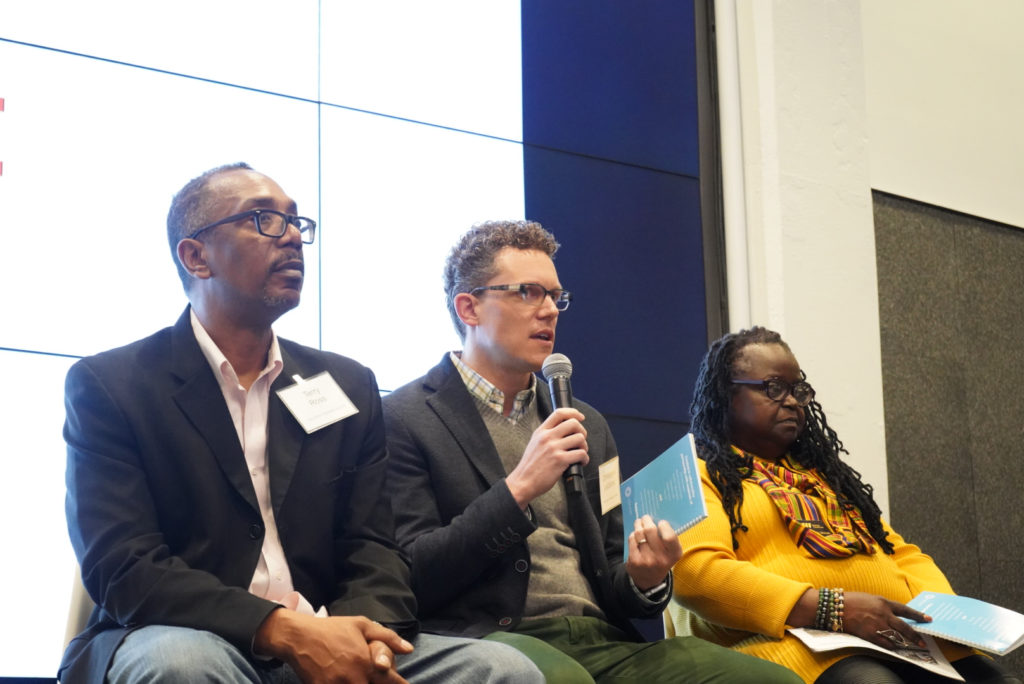Summit Recap: Westside Future Fund kicks of 2019 with Atlanta Community Engagement Playbook update
Westside Future Fund (WFF) kicked off the new year with high energy and familiar faces at its first Transform Westside Summit of 2019!
WFF welcomed back prominent members of the Westside community for a reintroduction of the “Atlanta Community Engagement Playbook.”
The playbook was birthed in 2017 out of the need to effectively engage the community in addressing issues impacting the city. Westside Future Fund debuted the tool at its January 6, 2017 Transform Westside Summit, and welcomed the group back for a refresher.
How it all began
The playbook was developed over an 18-month community-led research and design process, with input from residents, community associations, City department staff and service providers.
The collaborative included residents of Ashview Heights, Atlanta University Center, Castleberry Hill, Booker T. Washington, English Avenue and Vine City working alongside staff from City of Atlanta, Westside Future Fund, Atlanta Housing Authority: University Homes and the Georgia Institute of Technology. The project was made possible with support from the Living Cities: City Accelerator program.
WFF’s president and CEO, John Ahmann, introduced the presentation with fond memories of the Living Cities application process. He even surprised the panel by showing the video that was produced by Morehouse School of Film as part of the submission. The film served as a fitting intro.
“We spend so much time consulting our city planners but do we consult the people?” remarked one of the characters in the film, which echoed much of what drove the presentation panelists to get engaged with the project.
The panel included residents and community advocates Kelly Brown (English Avenue) and Makeda Johnson (Vine City), community advocate and NPU-T chairperson Terry Ross and Georgia Tech’s Chris Le Dantec, who helped design the playbook.

Each had personal stories of inadequate public engagement.
Enter the “Atlanta Community Engagement Playbook.”
New Model for Engagement
Over the 18-month development of the playbook, the working committee raised for consideration many of the traditional barriers to robust, effective public engagement, such as community skepticism, apathy and distrust from past missteps and failures as well as institutional incapacity.
It also sought to answer questions like, “How do you build community engagement from the grassroots?” and “How do you effectively involve the community in the process from the start?”
These barriers and questions were specifically addressed in the playbook, and, according to the panelists, have already made a difference since its original launch in 2017. Two years later, those who helped to bring the playbook to life want to make sure their work was not in vain and that the community continues to recognize its utility.
“Let’s not lose the progress that was made,” said Le Dantec.
The playbook is a collection of best practices – or “plays” – for how to implement effective and impactful civic engagement projects across different city concerns. The goal of the playbook is to increase the capacities of both community associations and service providers to collaborate to achieve authentic and impactful change that represents the needs of Atlantans.
Written as a collection of resources, the playbook contains a variety of practices and strategies that can be picked up in part or in whole depending on who’s involved, community needs and availability of time and resources.

“This book is not about consultation,” added Le Dantec. “This book is about engagement. This book is about starting from the beginning with a group of concerned citizens and working to define the problem and identify the solution collectively.”
Panelist Makeda Johnson shared her personal appreciation for the playbook. “I have been a community organizer and advocate for most of my life, and I’ve seen many forms of community transformation,” said Johnson.
“Here on the Westside, we say we are building the Beloved Community. One of the things essential to building a beloved community is inclusion. Total inclusion. Inclusion with integrity. Many other community transformation models do not include the people. It’s a process done to the people. When we gathered to create this playbook, we wanted to create a new model. And I now refer to this book often. It’s a road map and a way to check yourself.”
The full “Atlanta Community Engagement Playbook” can be downloaded here.
To watch the video of the full Summit presentation, click below. To view the Summit program, click here.
